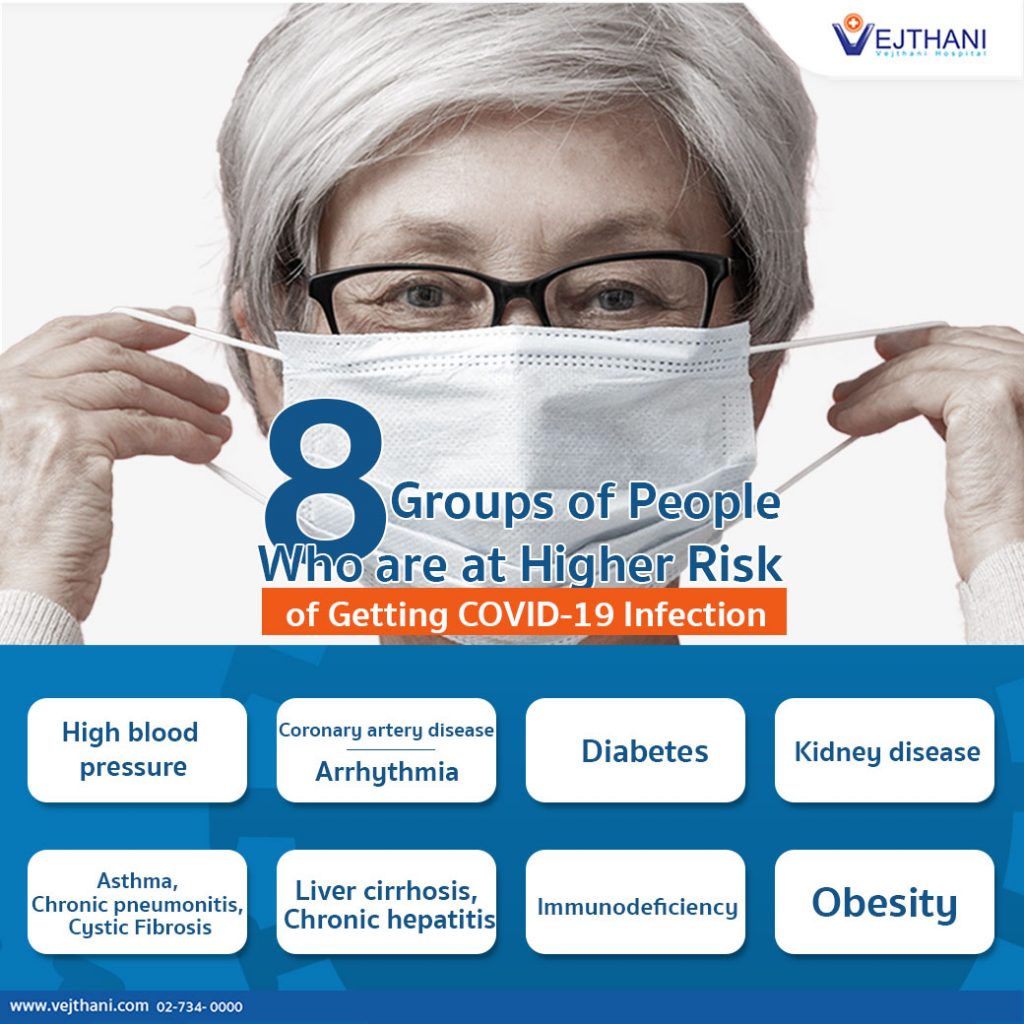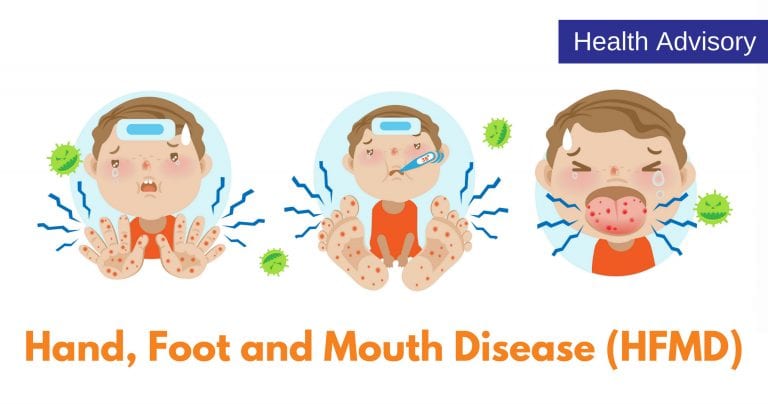

Patients who were infected by the COVID-19 virus have different symptoms. Some patients even have no symptoms, but on the other hand, some patients manifest severe symptoms and needs to be attached to the ventilator. The groups of people who might have more severe symptoms than others are infants, pregnant women, elderly people, and the people who have the following underlying diseases:
- High blood pressure: High blood pressure patients who are infected by COVID-19 virus will have more severe symptoms because the virus affects the blood circulation and that might cause blood circulation failure.
- Coronary artery disease and Arrhythmia: Basically, the efficiency of the heart function and blood circulation in the patients who have coronary artery disease and arrhythmia are lower than others. Moreover, it will be even worst in elderly because they have weak immune systems. They are at risk of having blood vessels inflammation (vasculitis) which leads to abnormal blood circulation and inadequate oxygen delivery to the cells and tissues. These cause the heart to work harder and also leads to other complications such as heart failure, acute blood clot in the heart, severe inflammation of the lungs (Pneumonitis), and acute respiratory failure.
- Diabetes: Diabetic patients who cannot maintain their normal blood sugar levels are at higher risk of COVID-19 infection because the virus develops well when the body has high blood sugar levels and weak immune system. Moreover, the level of the ACE2 receptors in diabetic patients are higher, so when they are infected by the virus, the artery wall will be thinner, and it causes pneumonia and pulmonary edema which leads to respiratory failure.
- Kidney disease: Patients who have chronic kidney disease and those who have to undergo hemodialysis and kidney transplantation have weaker immune system than others, so they have higher risk of having COVID-19 infection and the possibility to have more severe symptoms than others.
- Asthma, Chronic pneumonitis, Cystic Fibrosis: COVID-19 affects the lungs, therefore, the patients who have lung diseases might have more severe symptoms. Moreover, they will also easily contract pneumonia.
- Liver cirrhosis, Chronic hepatitis: The patient who has liver cirrhosis or chronic hepatitis, has undergone liver transplantation and have to take immunosuppressive medicine, as well as liver cancer patients who are undergoing chemotherapy have the possibility to have more severe symptoms because the medicines that are used to treat COVID-19 affects the liver’s function. Hence, the underlying diseases will be more severe and medications need to be controlled.
- Immunodeficiency: Cancer or Aids patients, and the people who smoke cigarettes regularly have weak immune system, therefore, they cannot fight against the virus. These people do easily get infected and their symptoms will be more severe and last longer.
- Obesity: Obese patients tend to have similar symptoms as severe as diabetic patients. Especially, the patients who have BMI over 30 or 40, wherein the expansion of their lungs are limited which increases the risk and the possibility of having acute respiratory failure. Moreover, the size and weight of the patients will cause problems when using the ventilator or undergo X-ray.
In conclusion, avoiding the virus exposure is the best prevention method. So, please wear a mask, frequently wash your hands with soap and water or alcohol-based hand sanitizer, consume properly cooked foods, do not go to infected or crowded areas, and get tested if you found out that you are at risk or may have already been infected by the virus in order to receive the treatment in time.
- Readers Rating
- Rated 5 stars
5 / 5 ( Reviewers) - Spectacular
- Your Rating























